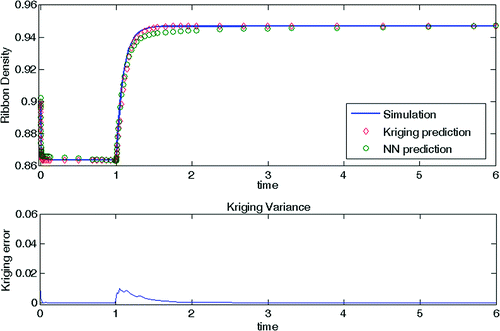Data-driven Process Systems Engineering Lab
Dynamic Data-Driven Modeling of Pharmaceutical Processes
Industrial Engineering & Chemistry Research 2011

In many pharmaceutical process operations, first-principle models describing the behavior of the processed powders are difficult to derive or computationally very expensive and thus can be considered as “black-box” processes. Kriging is an efficient data-driven methodology that has been shown previously to predict steady-state operation of black-box processes while providing error estimates for each prediction. In this work, the ability of Kriging to capture the dynamic behavior of processes is evaluated and compared to the performance of dynamic Neural Network (NN) models. Design of Experiment (DoE) concepts are employed to collect the necessary dynamic input–output information that forms the initial multivariate database of the model. The most important feature of the proposed dynamic Kriging methodology is the ability to improve its predictive efficiency as the database is augmented by additional useful information while the process operates. An error tolerance is used in the adaptive procedure, so that only predictions that satisfy a strict accuracy constraint are added to the database. The performance of the proposed method is compared to that of dynamic NN modeling, through their application to a roller compactor process. Results indicate that dynamic Kriging has a better ability to adapt to continuous transitions in the operating conditions, compared to NN modeling. This on-the-fly approach can have significant applications in real-time optimization and control of systems for which a closed-form model is not available.
Link to Publication